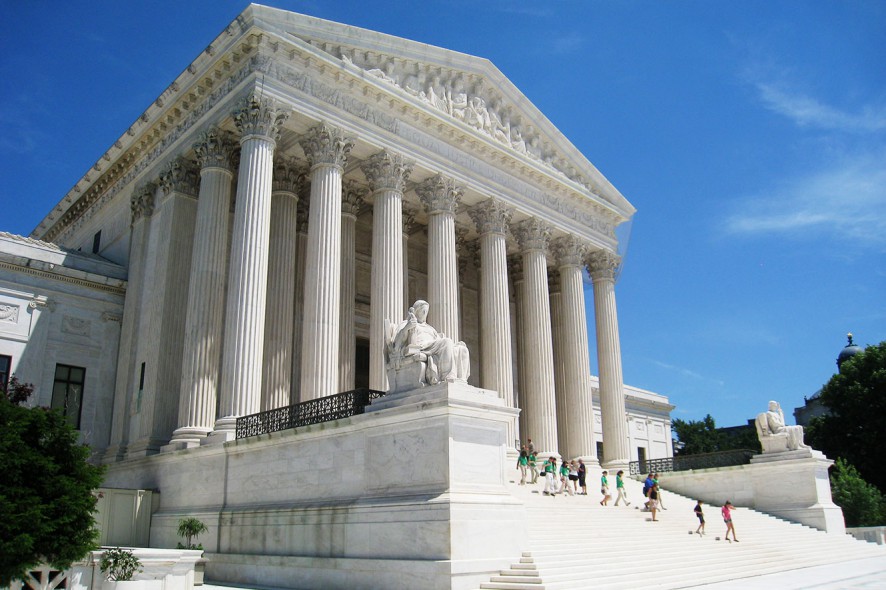Supreme Court of the United States: In the instant case the question arose before the 9 Judge Bench of the Court that whether the Government created lawful exemptions from a regulatory requirement implementing the Patient Protection and Affordable Care Act of 2010 (hereinafter ACA). The requirement (known as the contraceptive mandate) in question obligated certain employers to provide contraceptive coverage to their employees through their group health plans; though contraceptive coverage is not required by the ACA provision at issue, the Government mandated such coverage by promulgating interim final rules (hereinafter IFRs). Under the regimen, the Departments of Health and Human Services, Labor, and the Treasury (hereinafter the concerned Departments) promulgated two IFRs; the first expanded the church exemption to include an employer that “objects based on their sincerely held religious beliefs, to its establishing, maintaining, providing, offering, or arranging coverage or payments for some or all contraceptive services.”; the second created a similar “moral exemption” for employers with sincerely held moral objections to providing some or all forms of contraceptive coverage. The Court with a ratio of 7:2 upheld the IFRs in issue and the authority of the concerned Departments under the ACA to promulgate Rules imposing religious and moral exemptions for providing contraceptive coverage.
Pennsylvania and New Jersey challenged the IFRs on the ground that they were procedurally and substantively invalid under the Administrative Procedure Act (APA); the rules were substantively unlawful as the concerned Departments lacked statutory authority under either the ACA or Religious Freedom Restoration Act, 1993 (RFRA) to promulgate the exemptions. Upon the facts the District Court had issued a preliminary nationwide injunction against the implementation of the final IFRs, and the Third Circuit affirmed it.
The majority comprising of John Roberts, CJ., Clarence Thomas, Elena Kagan, Stephen Breyer, Samuel Alito, Brett Kavanaugh, and Neil Gorsuch, JJ., observed that administration had acted within its authority when it sought in to broaden existing exemptions to the “birth control mandate”. It was further observed that upon plain reading, the ACA provides a basis for both religious and moral exemptions. ACA grants sweeping authority to Health Resources and Services Administration (HRSA) to craft a set of standards defining the preventive care that applicable health plans must cover and that same grant of authority empowers it to identify and create exemptions from its own Guidelines. But the statute is completely silent as to what those “comprehensive guidelines” must contain, or how HRSA must go about creating them. The fundamental principle of statutory interpretation is that absent provisions cannot be supplied by the courts. Therefore concerns that the exemptions thwart Congress’ intent by making it significantly harder for interested women to obtain seamless access to contraception without cost-sharing cannot justify supplanting the text’s plain meaning.
The dissenting opinion was given by Ruth Bader Ginsburg and Sonia Sotomayor, JJ. As per them, the concerned Departments’ interpretation stalls Congress’ intent to provide contraceptive coverage to the women who are interested in receiving such coverage. [Little Sisters of The Poor Saints Peter and Paul Home v. Pennsylvania, 591 US (2020), decided on 08-07-2020]







